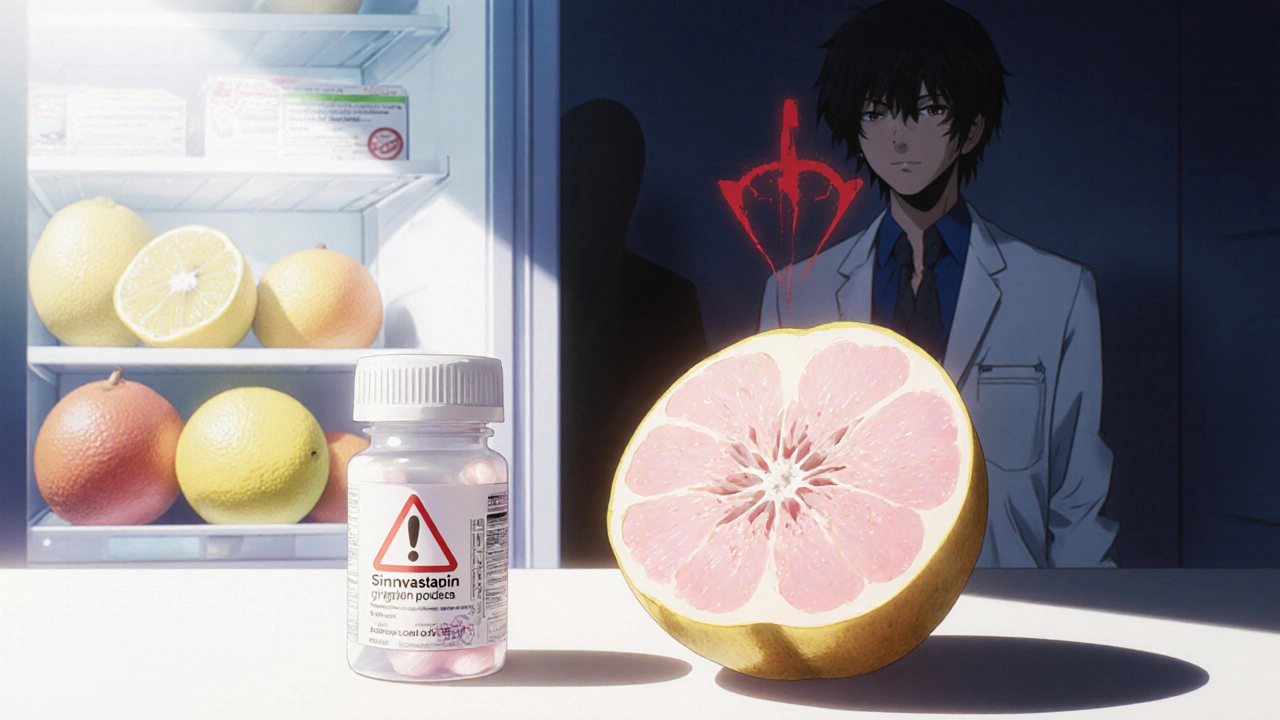Pomelo Drug Interactions: What You Need to Know Before Eating It With Your Meds
When you eat pomelo, a large citrus fruit related to grapefruit that can dangerously interfere with how your body processes certain medications. Also known as pummelo, it’s not just a sweet snack—it’s a silent player in your drug metabolism. If you’re taking blood pressure pills, statins, anti-anxiety meds, or even some cancer drugs, eating pomelo might turn a safe dose into a toxic one. This isn’t theory—it’s a real, documented risk that sends people to the ER every year.
The problem starts with an enzyme called CYP3A4, a liver and gut enzyme responsible for breaking down about half of all commonly prescribed drugs. Pomelo contains chemicals that shut down this enzyme like flipping a switch. When CYP3A4 stops working, your body can’t clear the drug properly. That means the drug builds up in your blood—sometimes to dangerous levels. For example, if you take simvastatin for cholesterol and eat pomelo, your statin levels can spike 15 times higher than normal. That’s not just side effects—that’s muscle damage, kidney failure, or worse. The same goes for felodipine, cyclosporine, and even some anti-arrhythmia drugs. You don’t need to eat a whole pomelo. One piece, one glass of juice—enough to cause trouble for days.
It’s not just pomelo. Grapefruit, Seville oranges, and some hybrids do the same thing. But pomelo is often overlooked because it’s less common in supermarkets. People assume if they’re avoiding grapefruit, they’re safe. They’re not. If your doctor told you to skip grapefruit, pomelo counts too. And if you’ve never heard this warning, you’re not alone—many pharmacies don’t list it on labels. The real danger is that these interactions don’t show up right away. You might eat pomelo for weeks and feel fine, then suddenly get sick after a dose change or new prescription. That’s why it’s not just about avoiding fruit—it’s about knowing your meds and asking the right questions.
Below, you’ll find real-world cases and clear guidance on which medications are most at risk, how to spot hidden sources of pomelo, and what to do if you’ve already eaten it with your pills. No fluff. Just what you need to stay safe.
Citrus Fruits Beyond Grapefruit: Pomelo and Seville Orange Effects on Drugs
Pomelo and Seville orange can be just as dangerous as grapefruit when taken with medications like statins and immunosuppressants. Learn how these citrus fruits interfere with drug metabolism and what you need to do to stay safe.

